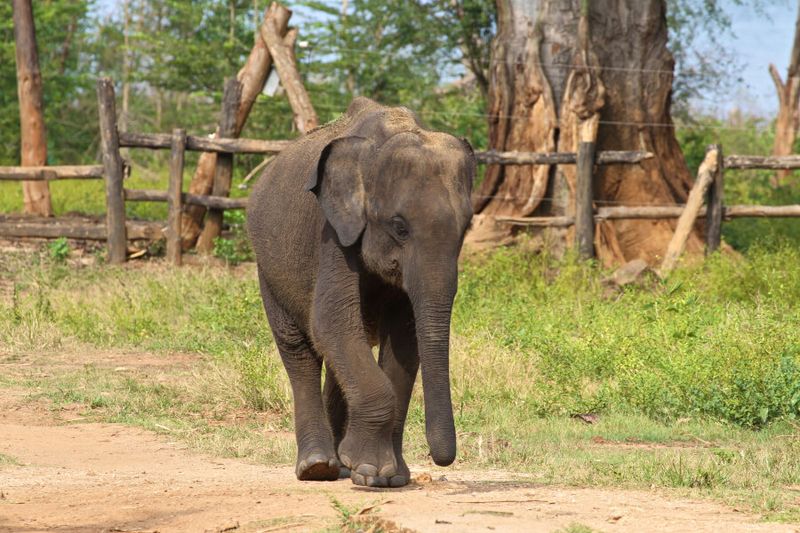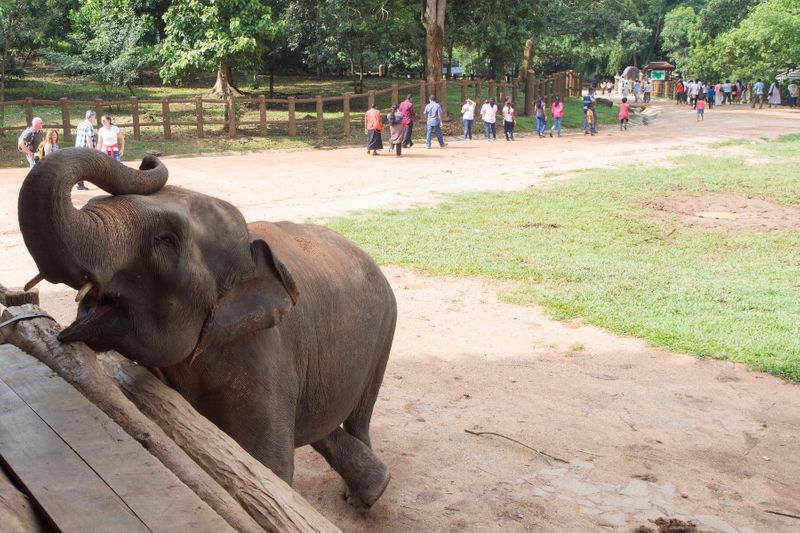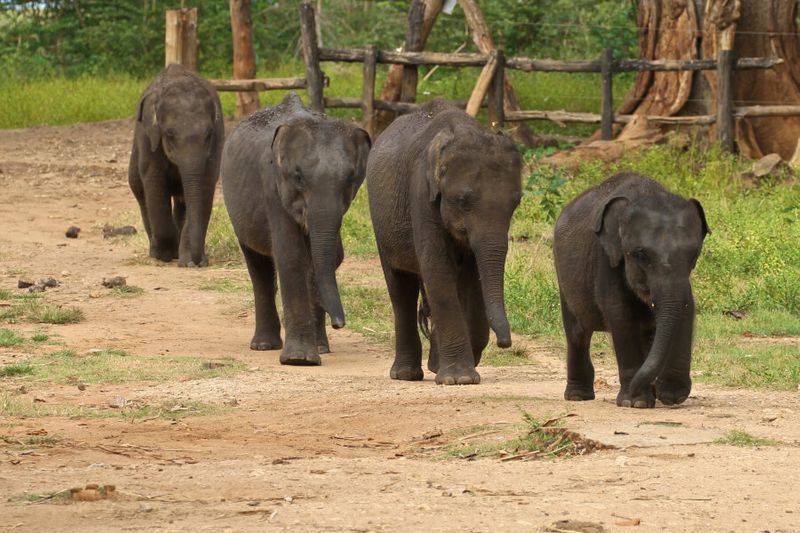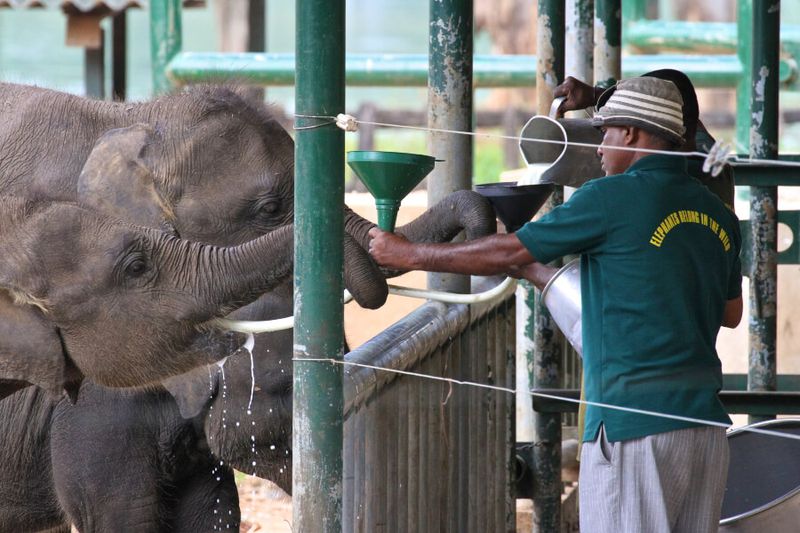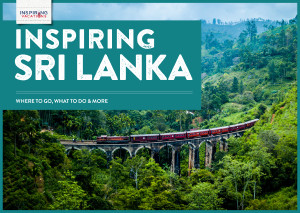Visit an ethical elephant rehabilitation facility and observe these baby pachyderms find their footing
Established by the Sri Lankan government in 1995, the Udawalawe Elephant Transit Home (ETH, or Ath Athuru Sevana in Sinhalese) rehabilitates baby elephants with the end goal of releasing them into the wild. These calves are often orphaned because of human activity that fragments their communities, or because their parents are killed – either by poachers or by leftover land mines from the civil war.
Located in the Udawalawe National Park, the goal is to keep the young elephants as close as possible to their natural habitat so they don’t become too reliant on humans for care. Over time, the transit home has developed a reputation as a distinguished and thoughtful place for responsible wildlife rehabilitation.
Despite there being other national parks with these gentle giants, Udawalawe has become the epicentre of Sri Lankan elephant activity, possibly because of its large reservoir. Furthermore, the ETH places a firm focus on the welfare of the elephants, and as such, visitors are only allowed to observe, but not touch the elephants. The thrice-daily baby elephant feeding is always a popular (and sometimes) loud sight. Visitors can support the elephant rehabilitation programme through 'naming' an elephant and other supplementary activities or donations.
Sri Lankan elephants
Sri Lankan elephants are a subspecies of the Asian elephant, with only a few males that produce tusks. They once roamed many areas across Sri Lanka, but today, are concentrated around drier lowland areas, especially in protected areas like national parks. Large numbers were killed for sport by the British during the colonial era. Since elephants are herd animals, it is impossible for babies to survive on their own, as they need constant feeding and care. As orphans, they bond together in small groups, and wherever possible, are released together as a 'found family' unit—caretakers and researchers also fit the elephants with unobtrusive radio collars so they can monitor their movements in the time following their release. The best-case scenario is for these rehabilitated young elephants to rejoin a wild herd—in some cases, individual elephants might end up 'shadowing' a herd.
Caring for calves
Even after years of dealing with displaced and orphaned babies, the most successful long-term solution to feeding baby elephants is a special powdered milk formula for human babies. Like people, elephants can have digestive sensitivities or can be lactose intolerant, in which case, other options like soy milk, rice broth, or a special solution called jeevani are used. Jeevani is generally considered to be an ayurvedic tonic to help combat malnutrition. The ETH caretakers focus on allowing the elephants to develop relationships with each other, as opposed to with humans, so as to make their eventual release easier. Udawalawe’s majestic foster children are allowed to roam free with as little human interaction as possible. Before release, ETH even takes a further step to bathe the elephants in a mixture of dung, so as to remove any trace of humans and reduce the chance of herd rejection.
